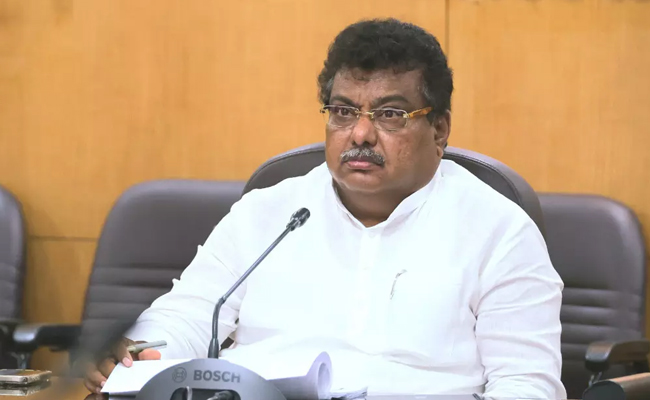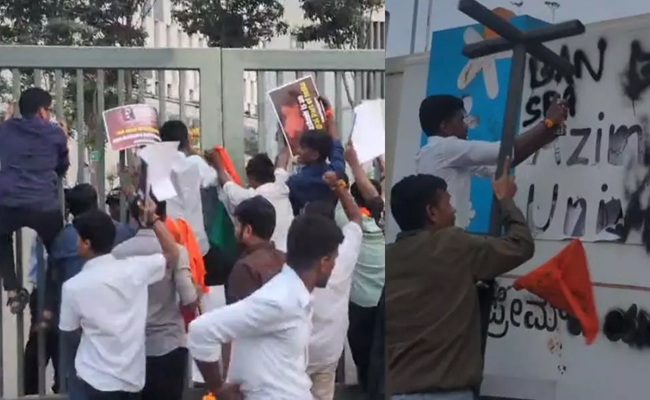Karachi, Mar 24: Controversial Pakistan left-arm pacer Mohammad Amir has decided to come out of international retirement and make himself available for selection for the upcoming T20 World Cup in the Americas in June.
Amir, who was banned from cricket for five years between 2010 to 2015 on spot-fixing charges and was also briefly jailed for his crime, had retired in 2021 from all forms of international cricket.
However, he has kept on playing in T20 leagues across the globe and now the new PCB regime under chairman Mohsin Naqvi has convinced him to take back his retirement.
"I still dream to play for Pakistan! life brings us to the points where at times we have to reconsider our decisions. There has been few positive discussions between myself and the PCB where they respectfully made me feel that I was needed and can still play for Pakistan," Amir wrote on 'X'.
The left-arm speedster, who last played for Pakistan in a T20I in Manchester in August, 2020 is expected to be summoned for the national camp in Kakul.
"After discussing with family and we'll wishers I declare that I am available to be considered for upcoming T20WC, I want do this for my country as it comes before my personal decisions. Donning the green jersey and serving my country has always been, and will continue to be, my greatest aspirations."
The soon-to-be 32 Amir has so far played 36 Tests, 61 ODIs and 50 T20Is for an aggregate of 259 scalps across formats.
I still dream to play for Pakistan!
— Mohammad Amir (@iamamirofficial) March 24, 2024
life brings us to the points where at times we have to reconsider our decisions, There has been few positive discussions between myself and the PCB where they respectfully made me feel that I was needed and can still play for Pakistan after…
Let the Truth be known. If you read VB and like VB, please be a VB Supporter and Help us deliver the Truth to one and all.
Bengaluru (PTI): Karnataka Minister M B Patil on Tuesday chaired meetings with industry representatives from the aerospace and defence, machine tools, auto/EV, and green energy sectors to discuss sector growth and government support measures.
The meetings were attended by leading industrialists and their representatives, with some participating virtually.
Speaking on the occasion, the minister for Large and Medium Industries said Karnataka is at the forefront of the country’s aerospace and defence sectors.
He noted that Suzuki and Toyota plan to launch aerial taxi services in Japan by 2028, with Bengaluru-based Sasmos supplying electrical equipment for the project.
Industrialists suggested introducing similar “fly-taxi” services in Karnataka through an appropriate policy, which Patil said would be examined seriously.
The minister highlighted the need to establish testing centres and Common Facility Centres for the aerospace and defence industries and assured that these facilities would be provided.
Suggestions were also made to prepare a comprehensive roadmap for sector growth.
Karnataka has urged the Central Government to approve Defence Corridor projects in the Bengaluru North–Kolar–Chikkaballapur and Dharawada–Vijayapura–Belagavi regions.
Industrialists also suggested a corridor between Bengaluru and Mysuru, Patil said.
He said Karnataka aims to become a hub for defence electronics manufacturing, with plans to establish a 200-acre Defence Electronics Park and a 100-acre Avionics and Sensor Park.
These projects will be implemented once the Special Investment Region is operational, and land availability will not be an issue.
On the machine tools sector, Patil said the industry has recorded an annual turnover of Rs 36,500 crore and is witnessing steady growth.
Large-scale exhibitions have increased demand, and the state must strengthen its capabilities to develop control systems for heavy machinery. One testing unit is already operational in Bengaluru, with another planned for Tumakuru. Expansion of vocational training institutes in industrial areas is also underway.
In the Auto and EV sector, Vision Group members highlighted the need for a network of dry ports and more EV charging stations across the state.
Patil noted that the Tata Group is manufacturing EV buses in Dharawada for nationwide supply. Plans for mini excavator production and export facilitation were also discussed, along with the establishment of a testing facility for two-wheeler EVs.
For the Green Energy sector, the group emphasised the need for a suitable policy on battery-based energy storage and the establishment of data centres.
Patil assured that the government will seriously consider all suggestions and respond positively.





_vb_21.jpeg)